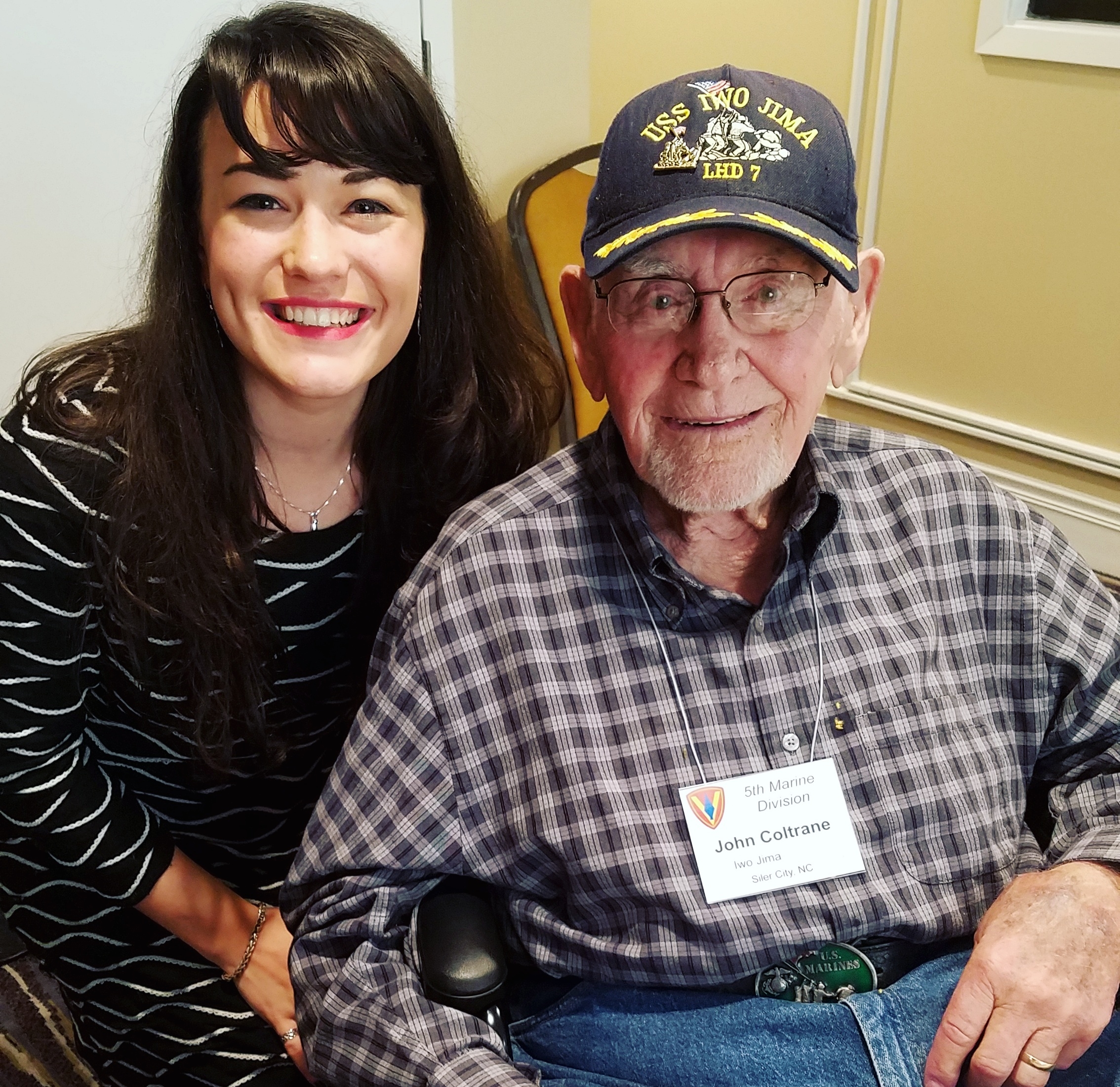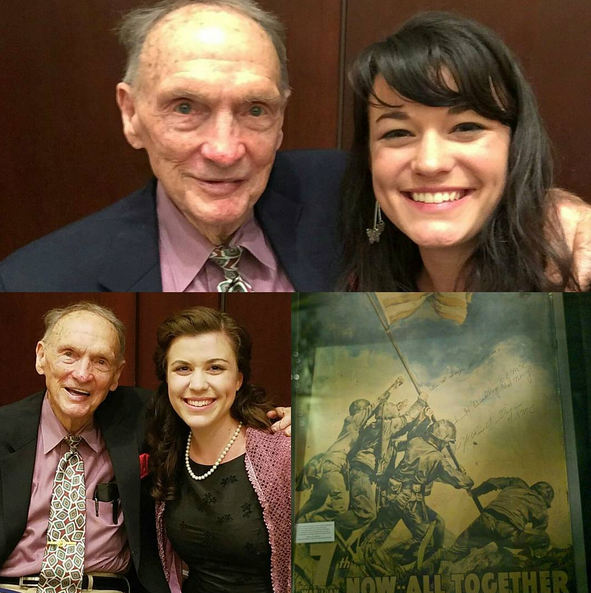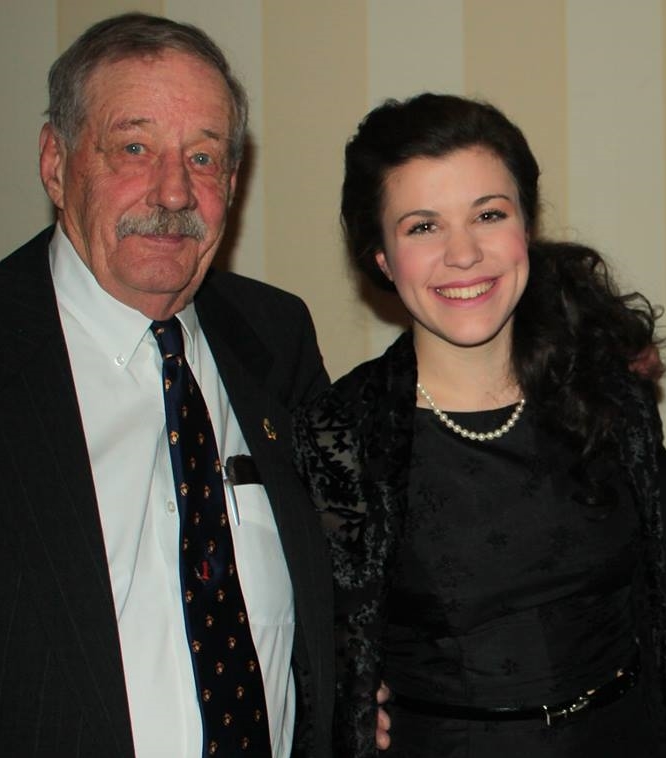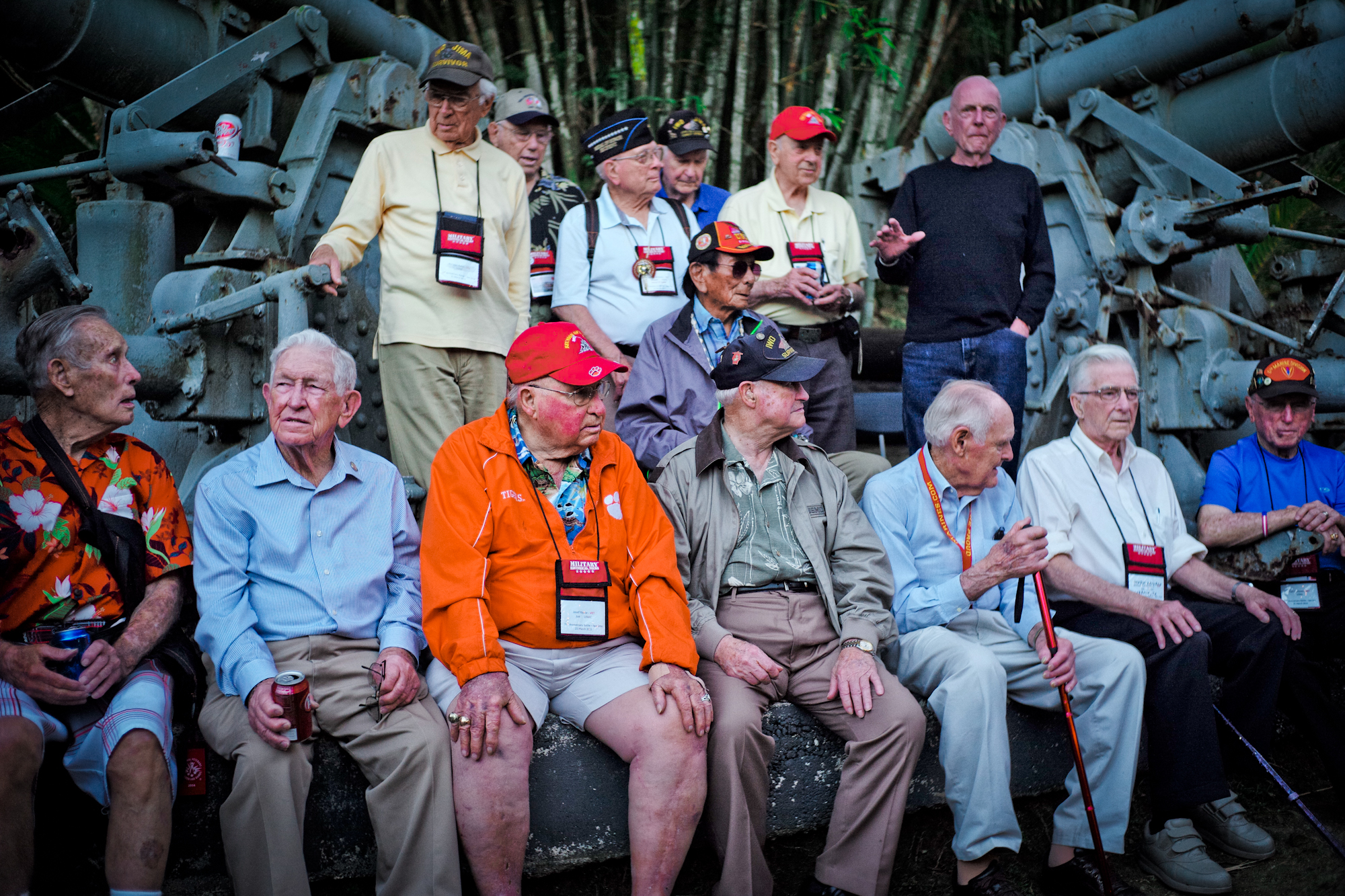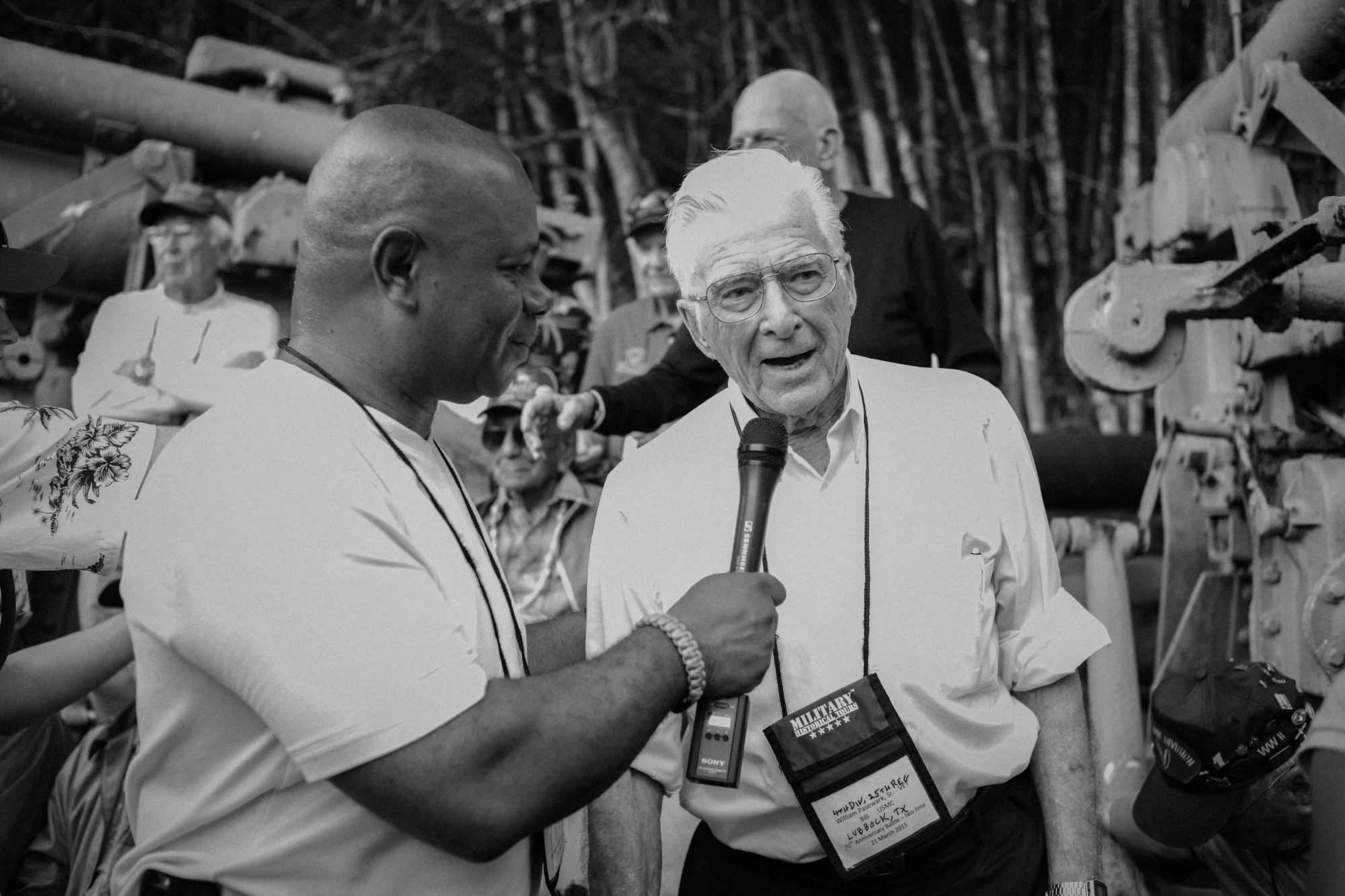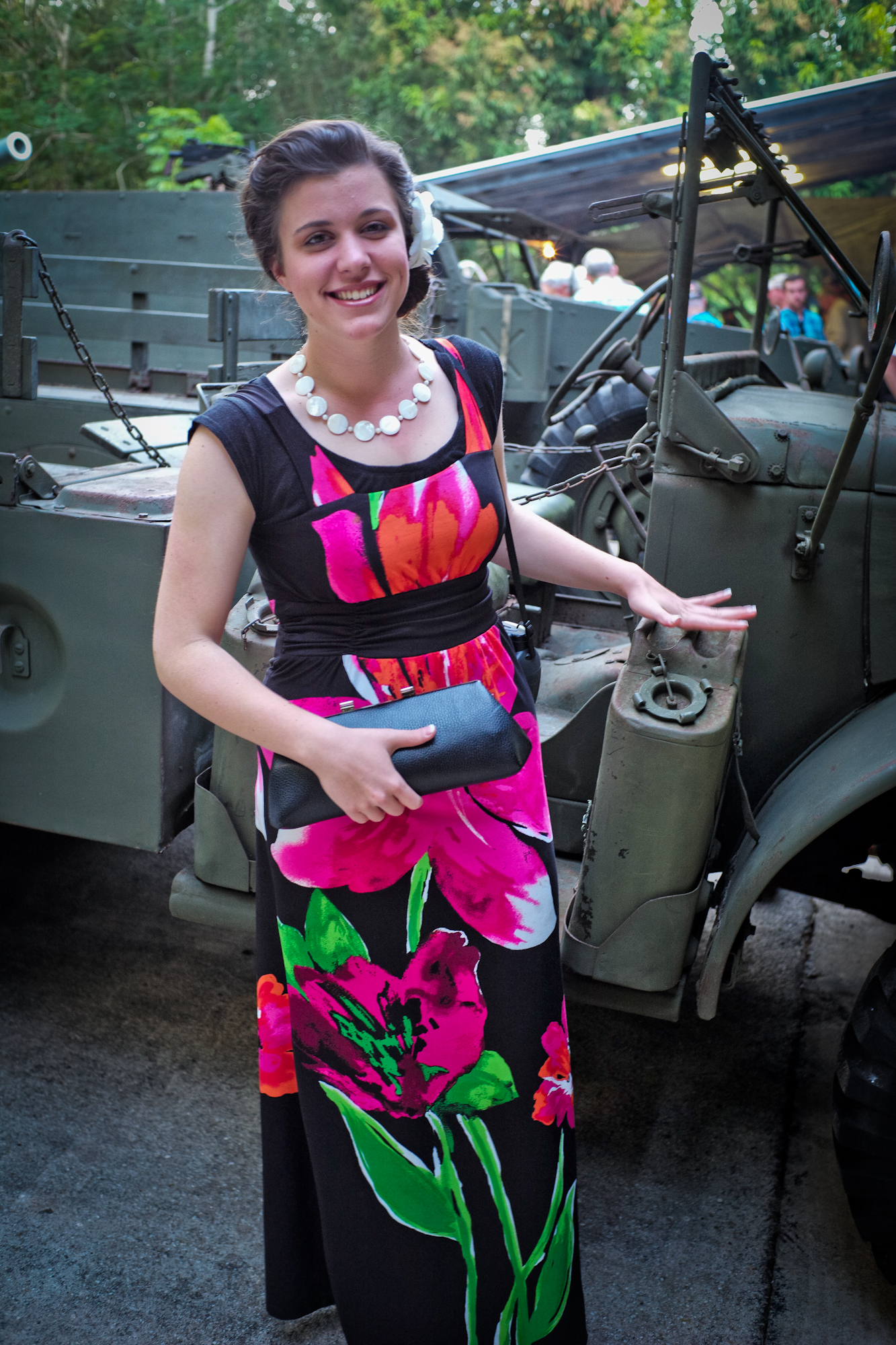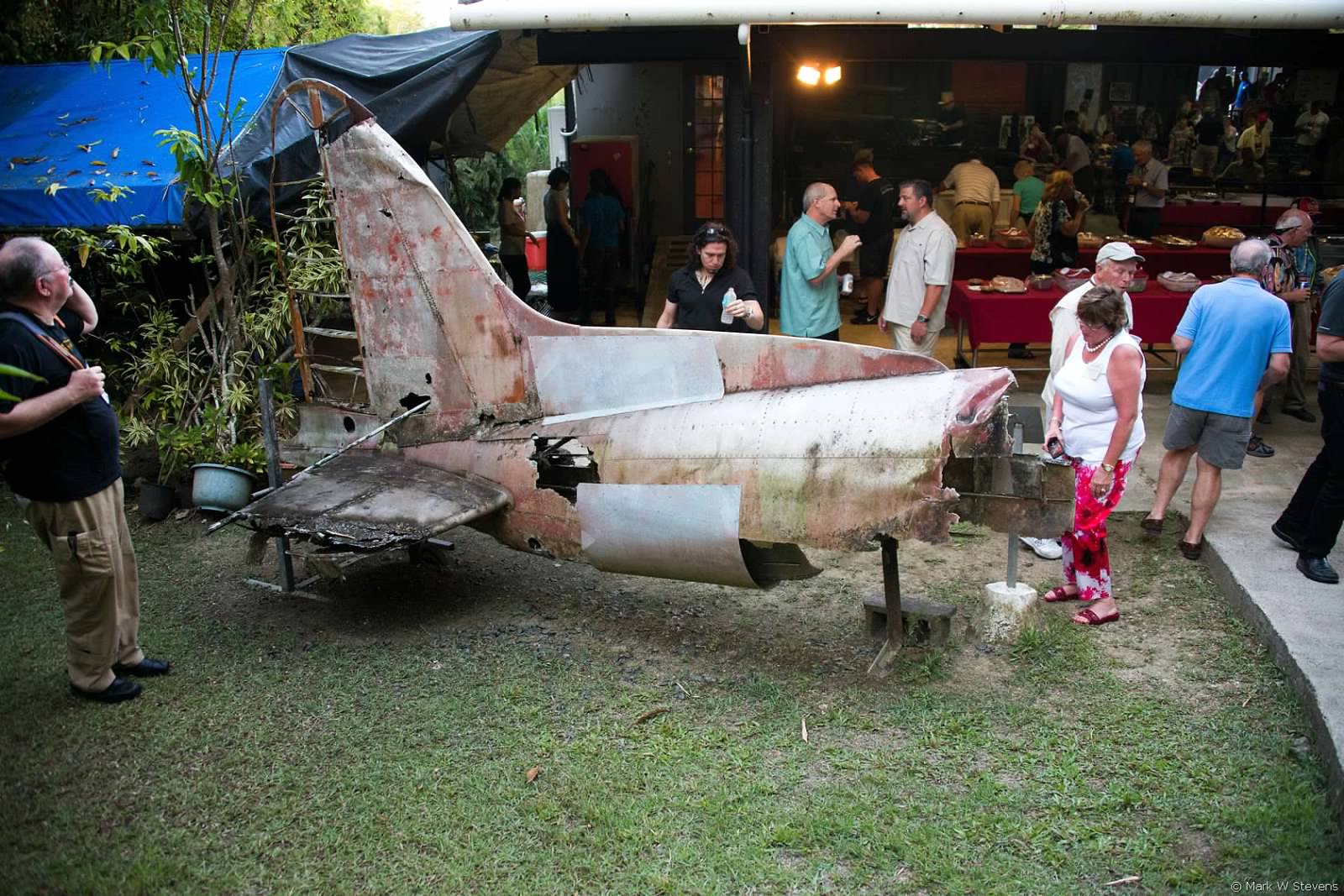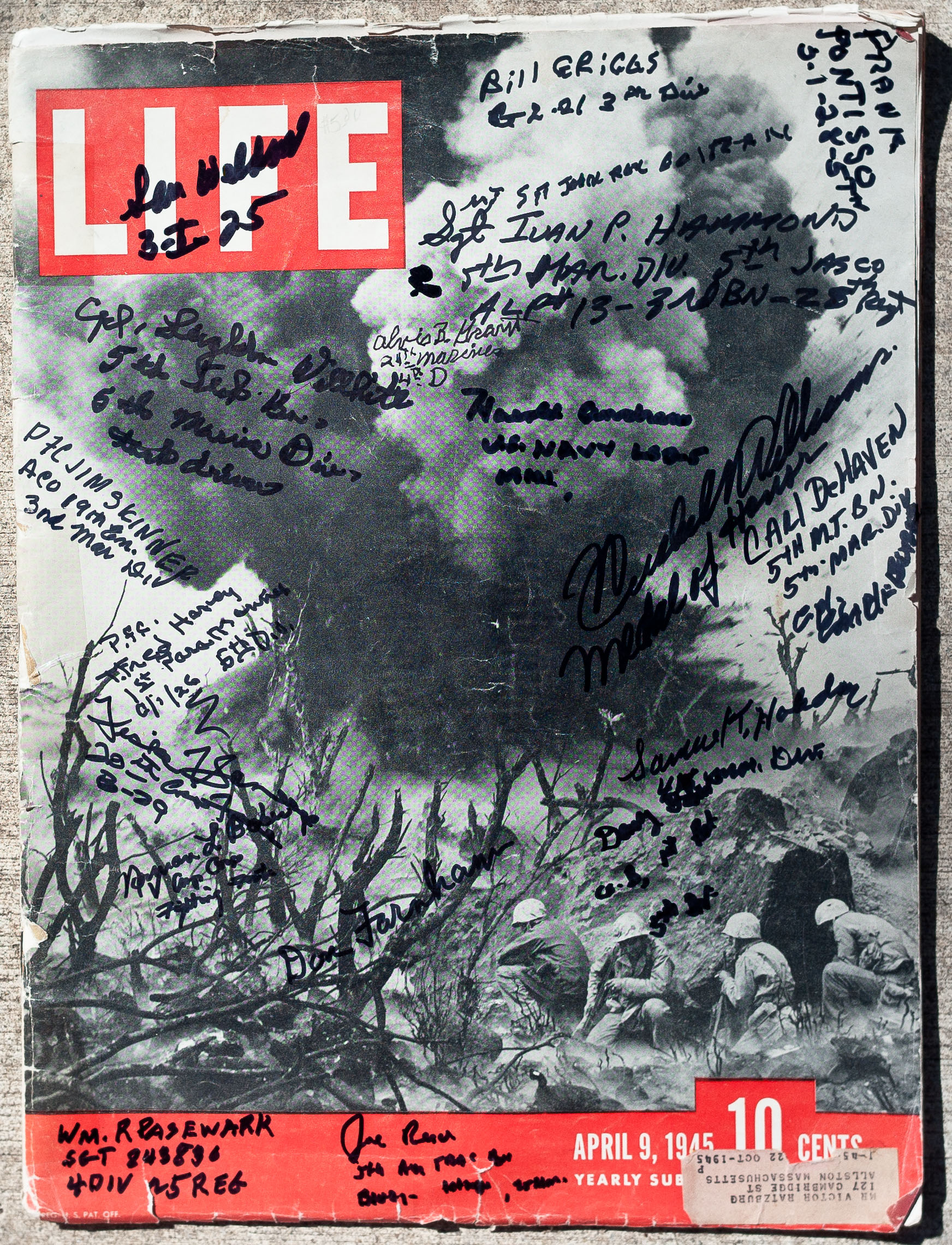For George: Remembering A Great Marine
/Many people come into your life. More go out of it. And a few of them touch your life in ways you couldn't have dreamed. George Cattelona is one of the few.
Anyone who ever met Mr. Cattelona knows what a character he was. One of his favorite sayings was, "I always try and give em' hell where ever I go." But for all his joking around, he had the rare and beautiful quality of true kindness and genuine sincerity. Visiting with him at reunions over the last couple of years and getting to know him better each time, whether it was killing a few hours in the hotel lobby waiting for his car to be repaired or galavanting about the MCX at Camp Pendleton, these two qualities of his became apparent and touched our hearts tremendously.
Virginia Beach 5th Marine Division reunion in 2015. George and his war buddy, John Coltrane.
The girls and I fondly called him our "Prospector." He may have been born in the 1920s, but there was an almost intangible aura about him that seemed to come from another time. He saw hard things on Iwo Jima. His before and after portraits taken during his time in the Corps give that away. It was difficult for him to talk about Iwo, nevertheless he did because it was so important for his buddies to be remembered. He was absolutely devoted to their memory.
I know the last few months following his accident were really hard for him. Mom and I were able to visit him in late May, and it broke my heart to see a man who was everything the Marine Corps stood for, everything that is American, noble, brave, and true, suffer so. Just a few months ago it seemed he would go on forever. And now, to hold his beautiful hands, look into his eyes and only see confusion in them; to listen to him talk about the men he served with on Iwo Jima as if they were still there, and to give him answers to his questions that only made him more frustrated. It made me cry. I didn't want to say goodbye and have that be my last memory.
During our last visit, like a break in the clouds on a stormy day as if in answer to my prayer, for a few minutes that old familiar twinkle, (slightly ornery, slightly mischievous), came back into his eyes as he cracked a few jokes that only the George Cattelona I knew could make. He pretended to be annoyed that we were holding up his lunch, but the smile curling up from under his moustache gave him away.
There's so much more about him I've left out. Losing him is hard. Harder than I imagined. In his passing it feels like a world of knowledge, wisdom, love, kindness, and sincerity has passed with him. We'll always love you Mr. C.





